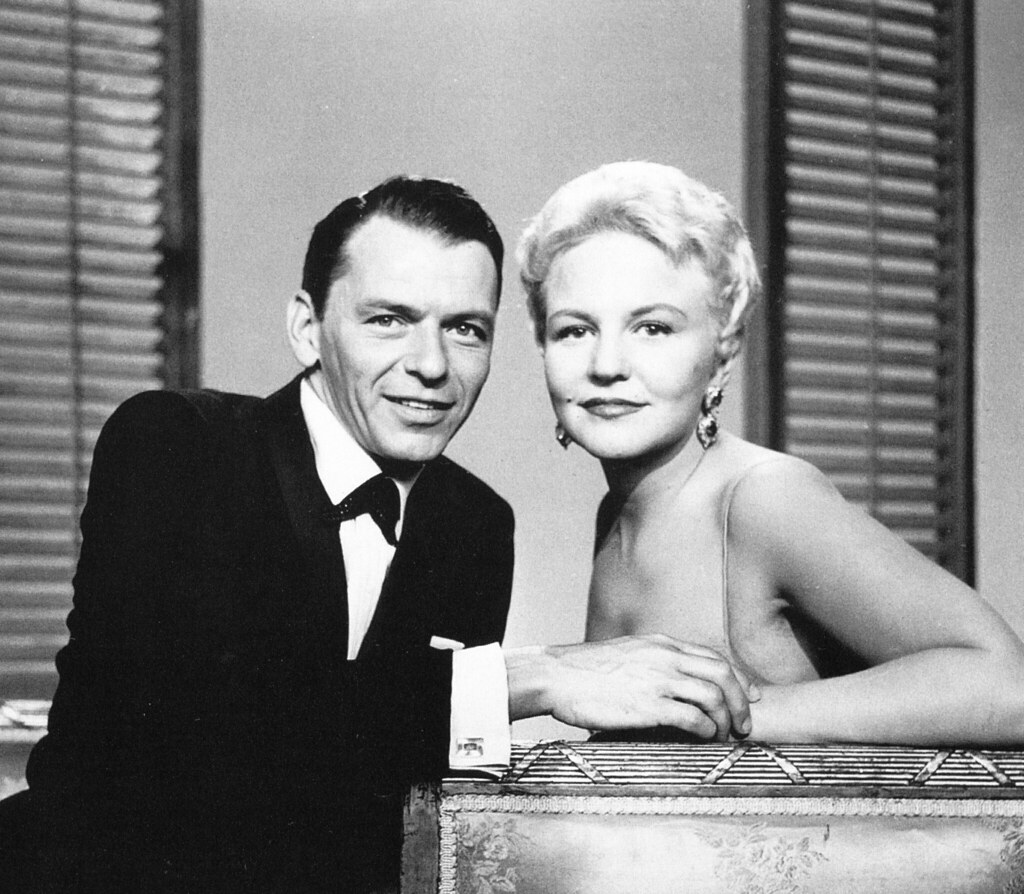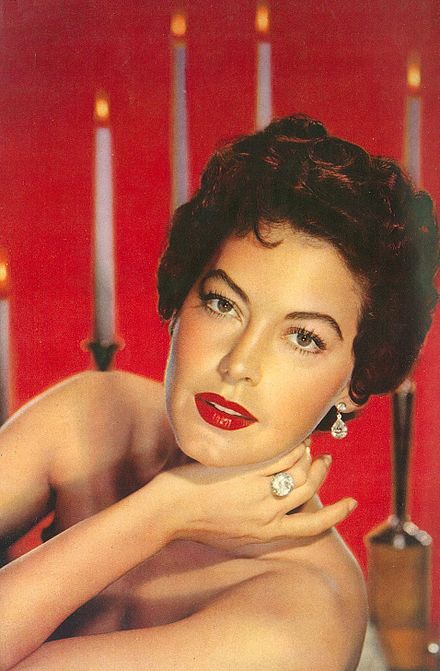
Frank Sinatra, a name synonymous with American musical genius and an unparalleled entertainment career, left an indelible mark on the 20th century. From his humble beginnings in Hoboken, New Jersey, to becoming one of the most popular singers and actors of his time, his life story is a testament to talent, ambition, and sheer charisma. His iconic voice graced hit songs like “New York, New York” and “Fly Me to the Moon,” making him a global phenomenon and a cultural icon whose influence resonates even today, decades after his passing.
Yet, beyond the dazzling stage lights and the silver screen, there was a man who built a substantial empire, amassing a fortune estimated to be around $200 million at the time of his death in 1998. The question of how such a colossal legacy would be distributed among his loved ones sparked considerable interest and, in some cases, lasting family discussions. Sinatra, known for his meticulous nature, crafted a will that carefully outlined the destiny of his wealth, touching the lives of his wives, children, grandchildren, and even trusted friends and employees. This document, filed for probate shortly after his death, provided a revealing glimpse into his final wishes and the intricate structure of his financial affairs.
This first section will meticulously unpack the specific provisions of Frank Sinatra’s last will and testament, shedding light on the key individuals who inherited portions of his vast estate. We will delve into the details of who received what, exploring the thoughtful — and sometimes surprising — allocations that reflected his relationships and priorities. From the significant shares designated for his widow to the specific bequests for his children, former wife, and loyal associates, we examine the precise mechanisms through which Ol’ Blue Eyes ensured his financial legacy would endure.

1. **Barbara Sinatra: The Primary Beneficiary and Custodian of a Fortune**When Frank Sinatra passed away on May 14, 1998, at the age of 82, it was his fourth and final wife, Barbara Sinatra, who was left with the largest share of his monumental estate. Married to Frank since 1976, Barbara was by his side through his final years, and his will clearly reflected her central role in his life. She inherited the lion’s share, ensuring her financial security and significant control over various aspects of his enduring brand.
Barbara’s inheritance was substantial and multifaceted. It included a staggering $3.5 million in cash, a sum that alone would constitute a significant legacy for most individuals. Beyond liquid assets, she was bequeathed the majority of his impressive real estate portfolio. This included their luxurious Malibu beach house, the desert horse ranch in Palm Springs, and a Beverly Hills mansion, properties that collectively represented considerable wealth and prestige. These homes were not merely structures; they were the settings of a legendary life, now entrusted to her care.
In addition to the valuable real estate and cash, Barbara received a wide array of personal belongings. This encompassed all the silverware, books, and paintings found in their homes, items that often hold immense sentimental as well as monetary value. She also inherited 25% of his other personal property, giving her a substantial portion of his cherished possessions. Furthermore, his will ensured she received a Mercedes-Benz and a Rolls-Royce, reflecting a lifestyle of luxury that she was expected to maintain.
Perhaps most significantly, Barbara was granted the control of Frank Sinatra’s image and publicity rights. This vital provision meant that she would oversee all future profits derived from advertisements, licensing deals, reissues, and anything else intrinsically tied to the Sinatra brand. This intellectual property control, alongside the “Trilogy” master recordings and all related rights and royalties, and interest in several of his historic early recordings, positioned her as the primary steward of his posthumous financial empire, ensuring the continued generation of wealth long after his passing.

2. **Frank’s Three Children: Nancy, Frank Jr., and Tina Sinatra’s Inheritance**Frank Sinatra’s first marriage to Nancy Barbato produced his three children: Nancy Sinatra Lambert, Francis Wayne Sinatra (Frank Jr.), and Christina Sinatra (Tina). While they were central to his life, their inheritance from his final will was notably different in scope compared to Barbara’s. This distinction, while clearly stipulated, later became a point of contention within the family, highlighting the complexities of estate distribution among public figures.
Each of Sinatra’s three children received a cash bequest of $200,000. While a substantial sum, it was a fraction of the liquid assets left to Barbara. More enduringly, they inherited interests in a Beverly Hills office building, providing them with a shared, ongoing asset. This provided a tangible stake in his business ventures, albeit one that required shared management and decision-making among them.
Crucially, years before his death, Sinatra had already appointed his three children with the sole rights to most of his music catalog. This meant that the royalties and publishing rights for a significant portion of his legendary recordings were already under their control. For Nancy and Tina, who remained deeply involved in managing the Sinatra brand after his death, this control over his musical legacy was arguably more significant than the cash inheritance, offering a direct link to the ongoing success of his artistry.
Beyond these financial provisions, the children also shared in the distribution of certain personal effects. The will stipulated that Sinatra’s clothes, train collections, furniture, and other property were to be shared between Barbara and his children. This collective inheritance of sentimental items ensured that each family branch received a piece of the personal history, fostering a shared connection to the man behind the legend, even amidst the varying scales of their financial inheritances.
3. **The Grandchildren’s Legacy: A Million-Dollar Trust for the Next Generation**Frank Sinatra, keenly aware of the importance of family and the continuation of his legacy, extended his generosity to the next generation. His will included a significant provision for his grandchildren, demonstrating a desire to provide for their future and ensure a lasting financial foundation for his descendants. This specific bequest underscored his commitment to his lineage, solidifying his role as a patriarch who thought beyond his immediate offspring.
Sinatra established a substantial trust fund for two of his granddaughters, Angela Jenifer Lambert and Amanda Katherine Lambert. This trust, initially created in 1983, was further bolstered by a $1 million contribution from his estate after his death. This provision ensured that a significant sum would be set aside and managed for their benefit, providing financial security and educational opportunities as they came of age.
Reports suggest that each granddaughter received $500,000 through these trust funds, a clear and deliberate move to extend his legacy across another generation without overextending the estate. By placing these funds in a trust, Sinatra ensured professional management and long-term benefit, reflecting a sophisticated approach to wealth transfer that aimed to protect and grow these assets for years to come, rather than a direct, immediate cash payout.
This particular allocation also highlighted Sinatra’s foresight. While the names of the grandchildren were sometimes kept out of public court records in some reports, the act itself was highly publicized, emphasizing the deep family ties and the importance he placed on supporting future generations. It showcased a desire to offer a solid start to those who would carry his family name forward, acknowledging their place within the extensive Sinatra family tree and providing for them in a structured and considered manner.

4. **Nancy Barbato Sinatra: A Surprising Bequest to His First Wife**One of the more unexpected, yet profoundly touching, provisions in Frank Sinatra’s will was the significant bequest to his first wife, Nancy Barbato Sinatra. Despite their divorce decades prior, having separated in 1951, Nancy Barbato received a $250,000 cash sum. This gesture speaks volumes about the enduring respect and history shared between them, tracing back to the very beginnings of Sinatra’s life and career.
Nancy Barbato was with Frank Sinatra during his formative years, when he was a struggling singer in Hoboken. Their marriage and the birth of their three children predated his meteoric rise to global stardom and the subsequent challenges of fame. This quarter-million-dollar gift, made long after their marital ties had dissolved, indicated a recognition of her foundational role in his life and the sacrifices made during those early, lean years. It was a testament to a relationship that, while not ending in lifelong partnership, clearly held a significant place in his personal narrative.
This specific sum, set apart from the inheritances of his children or the extensive estate left to Barbara, underscores a distinct act of remembrance and gratitude. It showcased a generosity that extended beyond his immediate marital commitments at the time of his death, acknowledging the woman who had shared the very start of his journey before the world knew him as “Ol’ Blue Eyes.” Such a gesture is rare in high-profile divorces, making it a particularly poignant detail within his overall estate plan.
The inclusion of Nancy Barbato in his will also subtly underscored Sinatra’s deep-seated loyalty and perhaps a desire to ensure her comfort in her later years. It provided a powerful narrative element to his final wishes, suggesting a man who valued his past and the individuals who were instrumental in his life’s story, irrespective of where those paths diverged over time. This bequest, a quarter-century after their divorce, served as a quiet, respectful nod to their shared history and the enduring bond of their family.

5. **Loyal Friends and Dedicated Staff: Recognition Beyond Family**Frank Sinatra’s generosity was not solely confined to his immediate family and former spouses. His will also made specific provisions for a circle of loyal friends, long-time employees, and trusted associates, acknowledging their contributions and fidelity throughout his illustrious career. These six-figure sums demonstrated Sinatra’s appreciation for those who stood by him, often behind the scenes, during his various professional and personal endeavors.
Among the named beneficiaries were individuals who had served him closely. His former personal assistant, Dorothy Uhlemann of North Hollywood, received a bequest of $50,000. Elvina Joubert of Cathedral City was bequeathed $150,000. Such specific allocations highlighted the importance of their roles in his daily life and the trust he placed in them, ensuring their well-being after his passing. These were not mere employees but rather individuals who became an integral part of his extended personal and professional network.
Barbara Sinatra’s son, Robert Oliver Marx, also received a cash bequest of $100,000. While not a direct blood relative, his inclusion reflects the close ties formed within his final family unit. The context also mentions that Sinatra had intended at one time to leave $100,000 to longtime friend Jilly Rizzo, but Rizzo predeceased Sinatra, illustrating how closely he considered his inner circle and made plans for their futures, even if circumstances sometimes intervened.
The inclusion of these cash gifts for friends and staff underscored a profound sense of loyalty and a deep understanding of the support network that enabled his demanding lifestyle and career. It was a clear statement that his appreciation extended beyond the immediate family, recognizing the vital roles played by others in his life. While no public list was entirely released detailing all such beneficiaries, these specific mentions provided insight into the broad reach of his gratitude and his desire to care for those who had been a constant presence in his world until the very end.

6. **The True Scale of Sinatra’s Fortune: Beyond the $200 Million**Frank Sinatra’s financial legacy, estimated at a colossal $200 million at the time of his passing in 1998, represents a testament to a career of unprecedented success and shrewd financial management. This staggering figure, however, only tells part of the story. Adjusted for inflation, that $200 million would translate to an even more monumental sum, approximately $350-$400 million today, showcasing the enduring power of his earnings over decades.
It’s important to understand that this publicly reported figure often understates the true depth of a celebrity’s wealth. Much of Sinatra’s extensive estate, particularly significant assets and business interests, was strategically placed in a living trust long before his death. This sophisticated financial maneuver allowed for a more private and efficient transfer of wealth, bypassing the public scrutiny and lengthy processes of probate court for a substantial portion of his holdings.
Consequently, the specific contents and total valuation of this living trust, established for the benefit of his children, grandchildren, and his final wife, Barbara, were never fully disclosed to the public. This deliberate veil of privacy means that while we can ascertain the openly willed assets, the comprehensive scope of Sinatra’s fortune likely remains even grander and more intricate than public records suggest. It underscores a masterful control over his financial narrative, even posthumously.

7. **The Diverse Pillars of His Empire: How Ol’ Blue Eyes Made His Millions**Frank Sinatra’s journey to a $200 million fortune was not built on a single stream of income, but rather a robust, multi-faceted empire that capitalized on every facet of his extraordinary talent. His primary and perhaps most iconic source of wealth stemmed from his prodigious album sales. Despite other artists surpassing him in later decades, among those who started their careers earlier, Sinatra’s record sales, particularly from his LPs, were unparalleled. He famously recovered from earlier career dips, selling over 27 million records during one period, establishing a passive income that persisted throughout his life.
Beyond the recording studio, Sinatra was a titan of live performance, commanding astronomical fees for his appearances. From his early days as a singing waiter earning $15 a week, to his $75 per week contract with Harry James, and later $125 weekly with Tommy Dorsey, his value soared exponentially. By 1946, he was reportedly earning $93,000 per week for stage performances, culminating in a staggering $16 million three-year contract with the Golden Nugget of Las Vegas. His concerts, like a series at Carnegie Hall bringing in $1.6 million and a single evening at Chicago Fest yielding $250,000, were consistent moneymakers, demonstrating his immense draw.
His foresight extended to the burgeoning world of television. Sinatra leveraged his star power to secure lucrative Showtime television rights, such as a $1.3 million deal in 1982 for his “Concert of the Americas” in the Dominican Republic. This proactive embrace of new media, alongside his consistently sold-out shows which generated tens of millions, solidified his status as not just an artist, but a shrewd businessman who understood the expansive monetization potential of his global fame. His live performances, perpetually in high demand, ensured a steady flow of income, making every curtain rise a financial triumph.

8. **A Hollywood Powerhouse: Sinatra’s Lucrative Acting and Media Ventures**While celebrated primarily for his voice, Frank Sinatra’s prowess extended seamlessly into Hollywood, becoming a significant revenue stream. As an actor, director, and producer, he proved as formidable on screen as he was on stage, raking in millions from a diverse filmography. His role in the 1956 film *High Society*, alongside Grace Kelly and Bing Crosby, earned him $250,000 and contributed to the movie grossing over $13 million, making it the highest-grossing film of that year. Similarly, *Can-Can* in 1960 saw him earn $200,000 plus 25% of the profits, showcasing his considerable leverage.
By the 1950s, at the zenith of his acting career, Sinatra was reportedly earning the equivalent of $35 million per year from his combined film and music ventures. His film credits are extensive, including iconic titles like *From Here to Eternity*, *The Manchurian Candidate*, and *Ocean’s 11*, each contributing hundreds of thousands to his fortune. He even directed films such as *None But the Brave* and *Von Ryan’s Express*, demonstrating a comprehensive engagement with the cinematic world that went far beyond mere performance.
Sinatra’s ambition also led him to conquer the airwaves and small screen. From the early 1940s to the mid-1950s, he helmed his own radio shows on CBS and NBC. Later, he signed a $3 million three-year contract with ABC to launch “The Frank Sinatra Show.” This deal was further enhanced as ABC agreed to only 40% of the residuals and bought stock in Kent Production, Sinatra’s film unit, ultimately ensuring Sinatra received an impressive $7 million. These media endeavors underscored his versatility and ability to monetize his celebrity across platforms, establishing him as a true entertainment mogul.
His business acumen didn’t stop there. Sinatra also established Sheffield Enterprises, a company specifically designed to license his name and likeness, with his daughter Nancy at its helm as Chief Executive. He also held interests in Wilshire Camden Associates. These ventures, ranging from production companies to licensing firms, demonstrate a sophisticated approach to wealth creation that extended beyond his artistic output, ensuring his brand’s commercial value was continuously maximized and managed strategically for long-term profit.

9. **The Tangible Legacy: Sinatra’s Multi-Million Dollar Assets**Beyond cash and intellectual property, Frank Sinatra’s tangible assets formed a significant component of his vast net worth, reflecting his discerning taste and penchant for luxury. A man who appreciated the finer things in life, Sinatra amassed an impressive portfolio of multi-million dollar properties in some of the United States’ most coveted locations. These were not mere houses but grand estates that spoke volumes about his success and lifestyle, adding substantial value to his overall wealth.
His real estate holdings included a magnificent Beverly Hills mansion, a symbol of Hollywood prestige, along with two luxurious properties nestled in Palm Springs, an oasis synonymous with celebrity retreat. Adding to this impressive collection was a beachfront home in Malibu, offering unparalleled ocean views and embodying coastal elegance, and another large estate. While the exact market values of these properties were kept private, their size, architectural distinction, and prime locations indicate individual valuations running into tens of millions of dollars each, fully furnished to his exacting standards.
Beyond these architectural marvels, Sinatra’s personal property also constituted a considerable fortune. He owned a collection of luxurious cars, including a Mercedes-Benz and a Rolls-Royce, as well as expensive jewelry, art, and memorabilia that were not only valuable but also deeply personal. These cherished possessions, some of which were distributed among his loved ones, underscored his opulent lifestyle and the extensive scope of his personal wealth, making his estate a treasure trove of both financial and sentimental value.

10. **Enduring Echoes: The Family Dynamics and Post-Mortem Disputes**Despite the meticulous planning embodied in Frank Sinatra’s will, the distribution of his estate did not entirely quell long-standing family tensions, particularly between his fourth wife, Barbara, and his three children from his first marriage. Rumors of friction had persisted for years, with Sinatra’s children alleging that Barbara had actively prevented them from seeing their father in his later years. This underlying resentment, though often unspoken publicly, created a palpable rift within the family that lingered well after his passing.
The depth of this animosity was starkly illustrated when Barbara Sinatra passed away in 2017. None of Frank’s children attended her funeral, a poignant absence that spoke volumes about the unresolved feelings and the enduring perception that Barbara had disproportionately controlled access to their father and his legacy. Comments made by the surviving children, suggesting Barbara kept their father from them, highlighted the lingering emotional wounds and disagreements over the distribution of wealth and influence.
The disputes, unfortunately, did not end there. Even within the direct lineage of his children, financial disagreements emerged. Following the passing of Frank Sinatra Jr. in 2016, his own children found themselves embroiled in a battle over their inherited share of the Sinatra estate. Frank Jr. had named his three children—Michael, Francine, and Jocelyn—as beneficiaries of his portion, which they decided to sell in 2017. However, an internal feud quickly ignited over the valuation, with Michael Sinatra seeking to sell his shared ownership for $2 million, while his sisters advocated for a higher price. This contentious episode revealed that the complexities of wealth and family dynamics, even after generations, could continue to echo through the Sinatra legacy, demonstrating the persistent challenges of managing a famous fortune.

11. **The Unending Overture: Sinatra’s Posthumous Financial Empire**Decades after his death, Frank Sinatra’s music and business ventures continue to thrive, underscoring his indelible mark as a cultural icon and a shrewd entrepreneur. His songs remain ubiquitous, frequently aired on radio and heard in public spaces globally, proving that his artistic legacy transcends time. This enduring relevance translates directly into a significant posthumous financial empire, continuously generating wealth for his estate.
In 2007, a strategic move was made to consolidate and manage this empire. Sinatra’s three children, along with the family’s attorney and Warner Music Group, founded Frank Sinatra Enterprises (FSE). This company was specifically established to oversee the myriad aspects of Sinatra’s business, including the licensing of his name and image, the management of his recordings from his Reprise Records era, and other associated rights. This centralized entity ensures that his brand is meticulously protected and monetized in the modern era.
The scope of FSE expanded further in 2013 with a deal struck with Universal Music Group (UMG). This landmark agreement incorporated his Capitol Records recordings from the 1950s under a new UMG imprint, “Signature Sinatra,” creating a comprehensive catalog. While FSE is a private entity and does not publicly disclose its financial figures, the company is widely believed to be highly profitable, generating substantial income year after year. Tina Sinatra, when asked about the business, affirmed, “we do well and we are making profits, but we don’t just do it for the money,” highlighting both the financial success and the commitment to preserving his artistic integrity.
The sheer scale of his ongoing popularity is evident in modern metrics: Sinatra still garners over one million streams per week across various music services and platforms. This digital engagement, combined with licensing agreements and branding deals, ensures that his estate continues to earn millions annually. Though the precise total value of his posthumous net worth is challenging to estimate due to the private nature of his trusts and FSE, it is clear that Frank Sinatra’s legacy is a perpetual moneymaker, a testament to a career that truly lives on, providing for generations yet unborn.
Frank Sinatra’s story, from his humble beginnings to his status as a global icon, is as complex and captivating as his music. His meticulously crafted will, while aiming for clarity, sparked ongoing family discussions, painting a nuanced picture of wealth, legacy, and human relationships. But beyond the figures and legal documents, what truly endures is the man himself – Ol’ Blue Eyes – whose voice and business acumen built an empire that continues to captivate, entertain, and, indeed, generate a lasting fortune for his family and the world.




